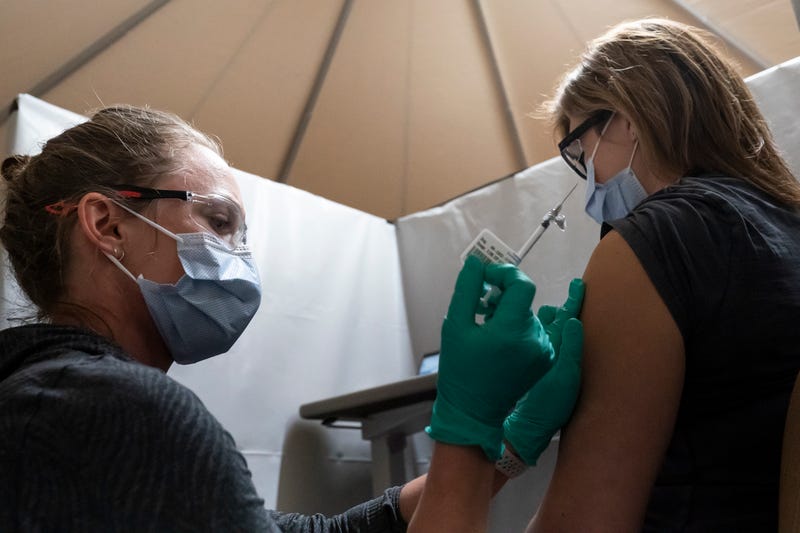
The Department of Veterans Affairs announced Tuesday it had administered more than 1 million doses of the coronavirus vaccine to veterans, staff and others so far during the pandemic, but expects to begin running out before supplies increase in March.
The announcement coincided with VA for the first time making public additional details on its vaccinations. Previously, VA had been releasing a total number of vaccine doses administered once a week. Now, the department is providing a breakdown of how many veterans, staff and other individuals have received first and second doses, as well as a breakdown for VA facilities across the country.
“In addition to administering 1 million doses of the COVID-19 vaccine, VA has begun publishing the number of Veterans who have received Pfizer BioNTech or Moderna vaccines at each facility across its enterprise,” Acting VA Secretary Dat Tran said in a statement Tuesday. “The number of doses administered to Veterans at each facility will be updated daily on the VA COVID-19 National Summary website.”
So far, VA has provided both doses to fully vaccinate more than 205,000 people and the first dose to more than 824,000. Of those, nearly 583,000 veterans have received their first dose and nearly 45,000 have received both doses to becoinme fully vaccinated.
About 240,000 VA employees have received their first dose, plus more than 160,000 who have received both. VA has also provided vaccinations to nearly 1,300 "federal partners" through its Fourth Mission.
VA cares for roughly 9 million veterans nationwide, about half the total number in the United States, but vaccines are severely limited so far. The department -- like other healthcare systems -- is pushing to vaccinate its most vulnerable first.
Each medical center within the sprawling department -- America's largest healthcare system -- has a different supply of vaccines depending on need, and is distributing them to different priority groups, including those 75 and older, 65 and older, those with pre-existing conditions putting them at greater risk and those who are essential workers.
The department is currently providing vaccines at more than 215 sites across the country, with plans to expand as vaccine supplies increase. Department officials said VA expects an increase in weekly vaccine doses beginning in March. Until then, "many facilities may temporarily run out of vaccines for short periods of time."
VA officials said the department is reaching out to veterans eligible for vaccination, but those who need additional information can find it on the VA COVID-19 vaccines webpage, their local facility’s website or through their current care team.
First and foremost, veterans need to be signed up with VA to be notified of vaccine eligibility, which can be done online. VA officials said veterans should wait to hear from their care teams before they schedule a vaccine appointment. Veterans can also directly contact their healthcare teams using VA's secure message system.
Most VA facilities are in the first phase of vaccinations, including healthcare workers, first responders and older veterans living in community living facilities, along with those 75 and older. Some VA facilities are already providing the vaccine to veterans who are essential workers and those at higher risk because of medical conditions. VA also recently announced that it would expand vaccine eligibility to some veteran caregivers.
As more and more veterans receive vaccines, some are hoping they set an example for other Americans.
"Veterans are setting an example for civilians," said Andrew Vernon, director at Powell Strategies LLC serving as an advisor in the VA Chief Strategy Office. "Civilians are more hesitant to get the vaccine, whereas veterans get them. Could be because of the multiple comorbidities, but also the strength they have because of everything they have endured when in service."
VA has reached grim milestones throughout the pandemic, recently surpassing 9,000 patient deaths. But as active cases drop, so too have the number of patients hospitalized because of the virus in recent weeks, signaling some hopeful developments after weeks of surging active cases and increases in patients who need more intense care.
For more information on VA and coronavirus vaccines, veterans and caregivers can go to the department's Frequently Asked Questions webpage, or call VA's main information number: 1-800-698-2411 (TTY: 711).
—
Reach Abbie Bennett: abbie@connectingvets.com or @AbbieRBennett.
Sign up for the Connecting Vets weekly newsletter to get more stories like this delivered to your inbox.




